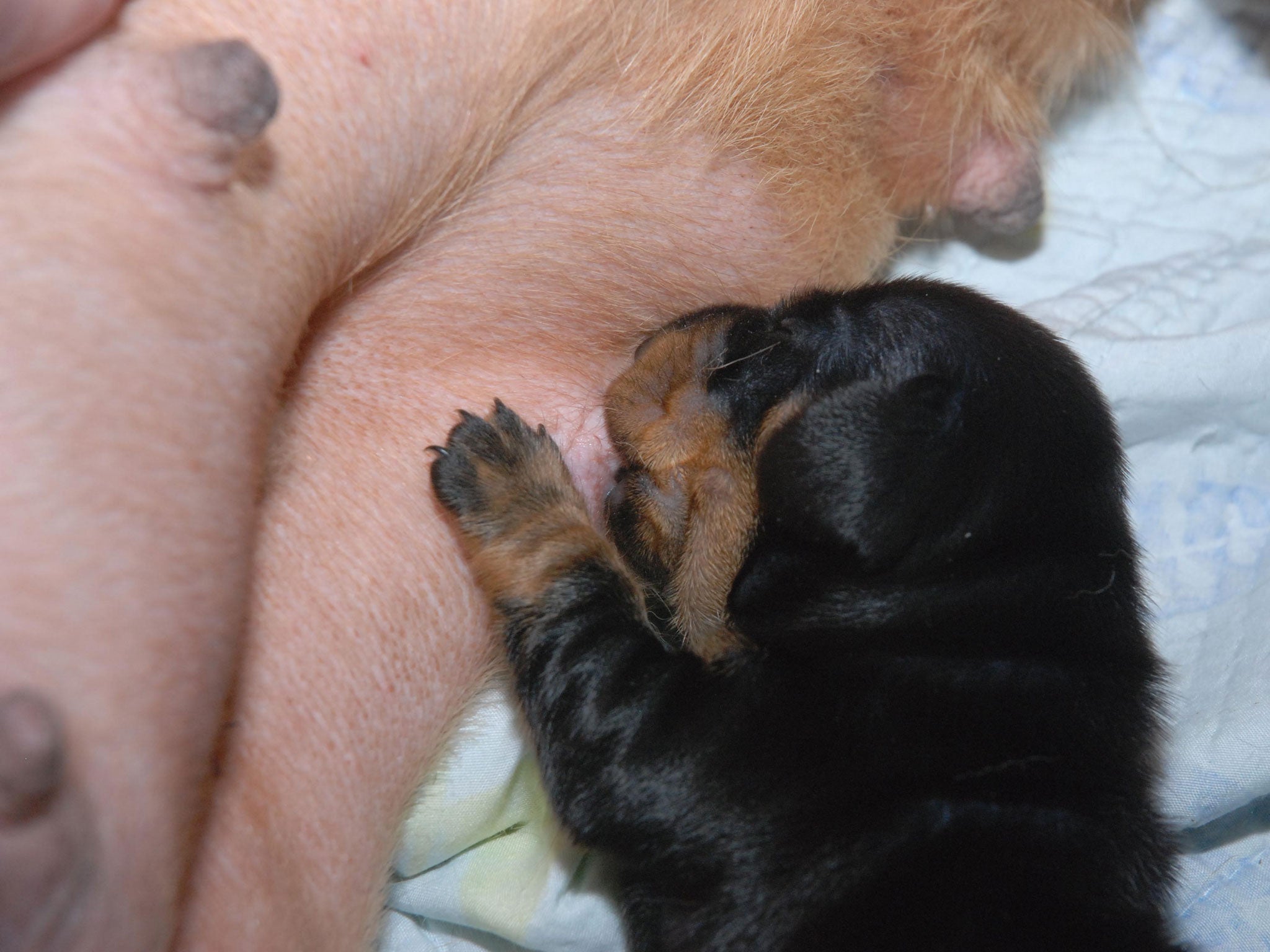Rover’s return: Britain gets its first cloned dog
'Minnie Winnie' created from test tube in £60,000 procedure after Londoner Rebecca Smith won a South Korean competition

Scientists have created Britain’s first ever cloned dog, after the owner of 12-year-old dachshund Winnie won a competition to have her reproduced in South Korea.
Owner Rebecca Smith, 29, was selected by the tech firm Sooam Biotech to have a new puppy created from the DNA of her much-loved pet, in a procedure costing around £60,000.
Skin cells were taken from Winnie and transported to South Korea in liquid nitrogen. On 30 March in Seoul “Minnie Winnie” was born to a surrogate mother, having been conceived in a test tube.
Ms Smith’s entry in the competition, journey to South Korea and the birth of her new pet will feature in a Channel 4 documentary set to air this evening.
She won the right to be involved in what is a first for any British pet after explaining to Sooam Biotech’s judges that her “ very special” dog Winnie had helped her overcome bulimia as a teenager.
The owner said that as her sausage dog got older, she and her boyfriend had joked that “we need to get her cloned”.
“Then I read an article about it and there was a competition to get your pet cloned. We sent in some videos and it just sort of snowballed from there.”
In pictures: Britain's first cloned dog
Show all 5Due to strict animal quarantine laws between the UK and South Korea, Ms Smith - from west London - will have to wait for six months before welcoming Minnie Winnie back home.
“I saw it being born and it looks exactly like Winnie,” she said. “It is identical. I am going to write to David Cameron to see if he can make an exception for ‘mini Winnie’. It was so hard leaving her behind, she is so sweet.”
Sooam Biotech, which carried out the work in Ms Smith’s case for free, hopes Britons’ love for their pets will inspire others to pay to have their dogs reproduced.
But Sir Ian Wilmut, who led the team that cloned the first mammal, Dolly the sheep, in 1996, warned that he was “sceptical” about the benefits of the procedure.
“Owners will be disappointed,” he said. “So much of the personality of a dog comes from the way you treat them. If you spend £60,000 on a cloned dog, you will treat it differently.”
And the procedure was condemned by the animal rights organisation Peta, which said: “It’s understandable that people fantasise about replicating an adored dog but cloning can only replicate genetic material.
“Cloned animals will develop different personalities. We cannot resurrect animals, but we can give living animals in desperate need a chance at a happy life. Every year, millions of homeless animals are euthanised.”
Dogs were first cloned in South Korea in 2005, where ethical standards for the treatment of the animals are lower than in the US or Europe. Sooam Biotech has now reportedly carried out more than 400 cloning procedures, including on particularly outstanding and highly-trained rescue and police dogs for the South Korean government.
Ms Smith said: “I have seen on pet forums that some people are against it. But the facility where the cloning takes place makes sure the animals are treated well. It is a lovely environment.
“Their vet centres are like something you would find on posh Harley Street.
“I understand people saying we are playing god but science is developing. Are we playing god with IVF treatment or body part transplants?
“At the end of the day I’ve got another Winnie and will love it the same way.”
The Channel 4 documentary The £60,000 Puppy: Cloning Man’s Best Friend will be broadcast on Wednesday at 10pm.
Additional reporting by Ian Johnston
Subscribe to Independent Premium to bookmark this article
Want to bookmark your favourite articles and stories to read or reference later? Start your Independent Premium subscription today.

Join our commenting forum
Join thought-provoking conversations, follow other Independent readers and see their replies